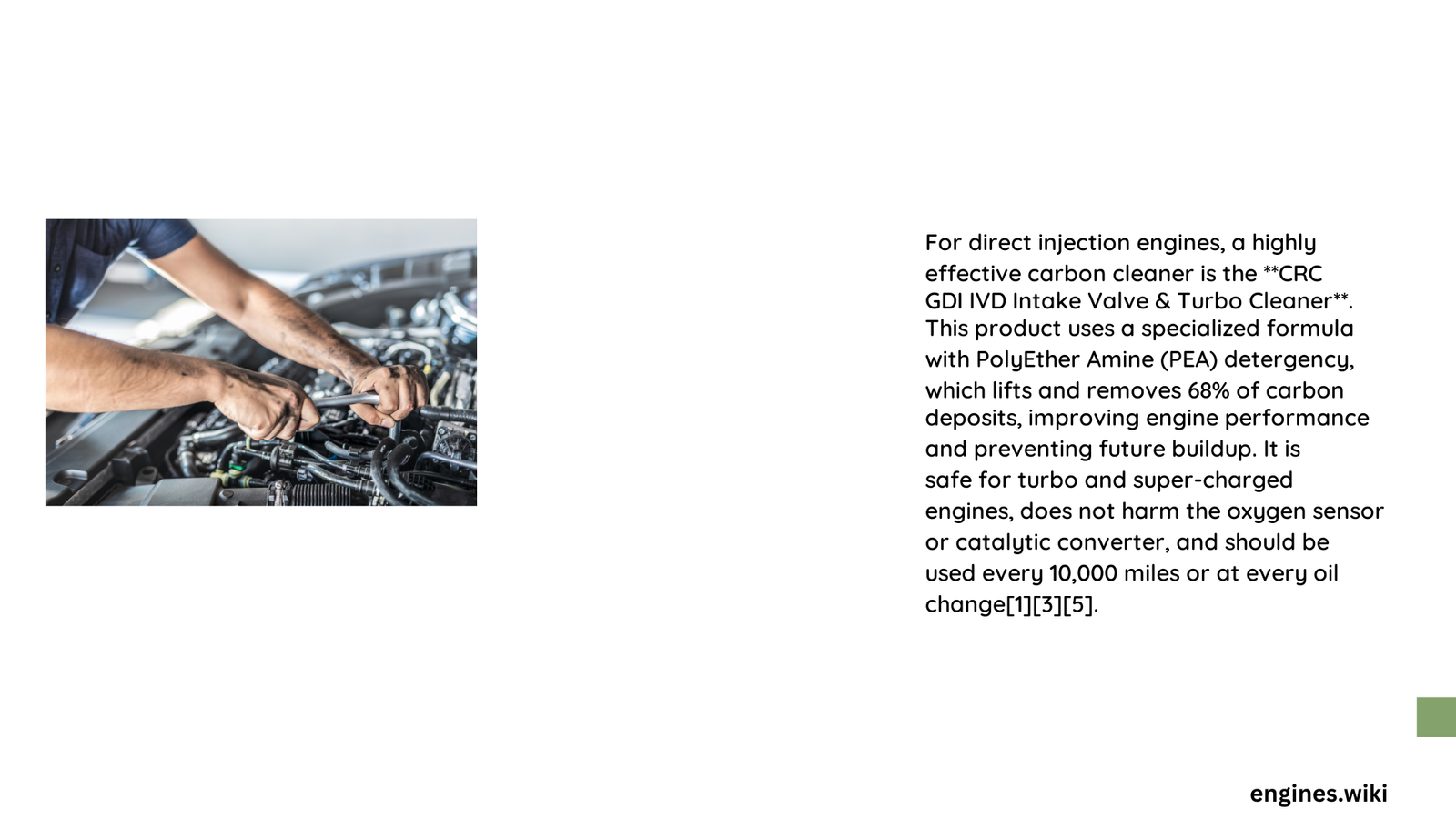Direct injection engines are prone to carbon buildup, which can significantly impact performance, fuel efficiency, and overall engine health. Carbon deposits accumulate on intake valves, preventing proper fuel atomization and causing reduced power, rough idling, and potential long-term engine damage. Effective carbon cleaning solutions involve specialized chemical treatments and mechanical techniques that remove these stubborn deposits, restoring engine efficiency and preventing costly repairs.
What Causes Carbon Buildup in Direct Injection Engines?
Direct injection engines are uniquely susceptible to carbon accumulation due to their design. Unlike traditional port fuel injection systems, gasoline in direct injection engines does not wash over intake valves, allowing carbon deposits to build up rapidly.
Key Factors Contributing to Carbon Buildup
- Fuel Quality: Low-grade gasoline increases deposit formation
- Driving Conditions: Short trips and stop-and-go traffic accelerate carbon accumulation
- Engine Design: High-pressure fuel delivery mechanism
What Are the Best Direct Injection Engine Carbon Cleaner Products?

| Product | Active Ingredients | Effectiveness | Price Range |
|---|---|---|---|
| CRC® GDI IVD® | PolyEther Amine (PEA) | 68% deposit removal | $10-$20 |
| Lucas Oil Deep Clean GDI | Concentrated solvent blend | 50% valve deposit removal | $10-$20 |
| Seafoam Top Engine Cleaner | Specialized solvent | Moderate effectiveness | $10-$20 |
How to Perform Direct Injection Engine Carbon Cleaning?
Chemical Cleaning Method
- Warm engine to operating temperature
- Spray cleaner through throttle body
- Run engine at specific RPM range
- Accelerate 2-3 times
- Let engine heat-soak
- Drive at highway speeds
Mechanical Cleaning Approach
- Requires professional tools
- Disassemble intake system
- Manually remove carbon deposits
- Recommended for severe buildup cases
What Are the Benefits of Regular Carbon Cleaning?
- Restored Engine Performance: Improved horsepower and torque
- Enhanced Fuel Efficiency: Reduced fuel consumption
- Prolonged Engine Life: Prevents premature wear
- Emission Control: Maintains optimal emissions standards
Safety Precautions During Carbon Cleaning
- Use protective gear
- Ensure proper ventilation
- Follow manufacturer instructions
- Work in well-lit, clean environment
When Should You Clean Carbon Deposits?
- Every 30,000-50,000 miles
- When experiencing performance issues
- Before scheduled maintenance
- After extended periods of short-distance driving
Professional vs. DIY Carbon Cleaning
DIY Cleaning
- Lower cost
- Requires technical knowledge
- Potential risk of improper execution
Professional Cleaning
- Specialized equipment
- Guaranteed thorough cleaning
- Minimal personal risk
- Higher cost
Recommended Maintenance Tips
- Use high-quality fuel
- Perform regular oil changes
- Avoid frequent short trips
- Monitor engine performance indicators
Cost Considerations
The average cost of carbon cleaning ranges from $100-$500, depending on the method and vehicle complexity. Preventative maintenance can save significant expenses in potential engine repairs.
Conclusion
Direct injection engine carbon cleaner is crucial for maintaining optimal vehicle performance. By understanding the causes, selecting appropriate cleaning methods, and following recommended practices, vehicle owners can effectively manage carbon buildup and extend engine life.
